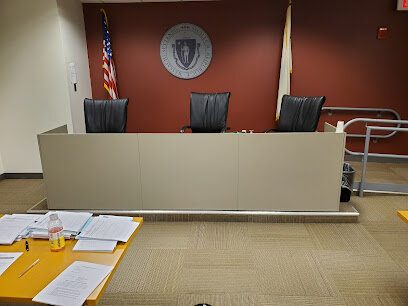Best Arrests & Searches Lawyers in Connecticut
Share your needs with us, get contacted by law firms.
Free. Takes 2 min.
Or refine your search by selecting a city:
List of the best lawyers in Connecticut, United States

About Arrests & Searches Law in Connecticut, United States
Navigating an arrest or search in Connecticut can be overwhelming, especially for those with little legal experience. Arrests and searches are highly regulated actions that law enforcement agencies must carry out according to state and federal laws. Connecticut follows both its own state constitution and the United States Constitution, which together provide protection for a person’s rights before, during, and after interactions with law enforcement. Understanding these rights is important for anyone who may encounter police investigations, stops, searches, or potential arrests.
Why You May Need a Lawyer
Legal representation is important if you are involved in an arrest or search because the consequences of mishandling these situations can be serious and long-lasting. Common circumstances where individuals may need help from a lawyer include:
- Being arrested or detained by police
- Having your vehicle, home, or personal belongings searched
- Facing criminal charges as a result of evidence gathered during a search
- Believing law enforcement conducted a search without a warrant or probable cause
- Being unsure about how to assert your rights during police encounters
- Needing help to navigate the bail process, hearings, or criminal court proceedings
A lawyer can help ensure your rights are protected and may be able to challenge any unlawful or improper actions by law enforcement that occur during arrests or searches.
Local Laws Overview
Connecticut’s laws about arrests and searches are influenced by both state statutes and federal constitutional standards. Some important points to know about local law include:
- Search Warrants: In most cases, police need a warrant signed by a judge to legally search your home or property. There are exceptions for situations such as consent, emergencies, or circumstances involving evidence in plain view.
- Probable Cause: Police must have probable cause to arrest you or search your property - that means reasonable grounds to believe a crime has been committed.
- Stop and Frisk: Connecticut law allows police to stop and frisk a person if they reasonably suspect that person has committed, is committing, or is about to commit a crime and may be armed and dangerous.
- Miranda Rights: Upon arrest, Connecticut police are required to inform you of your rights, including the right to remain silent and the right to have an attorney present during questioning.
- Bail: Individuals arrested in Connecticut may be entitled to post bail or bond to be released while awaiting trial, except in certain serious offenses.
- Suppression of Evidence: If evidence is obtained through an illegal search or arrest, it may be suppressed (excluded) from court proceedings under Connecticut's exclusionary rule.
Frequently Asked Questions
What is a legal arrest in Connecticut?
A legal arrest in Connecticut occurs when law enforcement takes a person into custody based on probable cause that they have committed a crime. The police must typically follow established procedures, including showing identification and informing the person of the reason for the arrest.
Do police always need a warrant to search my home?
Generally, police need a search warrant issued by a judge to search your home. However, exceptions apply in cases where consent is given, there are exigent circumstances, evidence is in plain sight, or a person is under arrest and the search relates to their immediate control area.
Can I refuse a search if police do not have a warrant?
Yes, you can refuse to consent to a search if the police do not have a warrant. If you give permission, any evidence they find can be used in court. If you do not give consent, the police must have a valid legal reason to search.
What are my rights if I am stopped by the police?
You have the right to remain silent and the right to refuse consent to a search of yourself, your car, or your home. You have the right to ask if you are free to leave. If arrested, you have the right to an attorney.
What should I do if I have been arrested in Connecticut?
Remain calm and do not resist. Ask for a lawyer immediately and avoid answering police questions without your attorney present. Remember, anything you say can be used against you in court.
When do the police have the right to search my car?
Police can search your car with your consent, with probable cause to believe evidence of a crime is present, if you are under arrest, or in some cases if they believe their safety is at risk. A warrant is not always required for vehicle searches.
What happens if police conduct an unlawful search or arrest?
If a search or arrest is found to be unlawful, any evidence obtained may be excluded from court proceedings. A lawyer can help challenge unlawful police actions and file motions to suppress such evidence.
How can I tell if a warrant is valid?
A valid search or arrest warrant must be signed by a judge and specifically describe the place to be searched or the person to be arrested. You have the right to read the warrant and can ask the officer for a copy.
Can I record police during a search or arrest in Connecticut?
Connecticut law generally allows you to record police in public spaces as long as you do not interfere with their duties. However, always announce your intentions and stay at a safe distance.
Do juvenile arrests follow different rules?
Yes, there are special procedures and protections for juveniles arrested in Connecticut, focusing on confidentiality and rehabilitation. Juveniles also have the right to legal counsel and must be treated according to Connecticut's juvenile justice guidelines.
Additional Resources
For further information or assistance regarding arrests and searches in Connecticut, consider reaching out to the following:
- Connecticut Division of Criminal Justice - Provides information on criminal procedure and prosecution
- Connecticut Judicial Branch - Offers public resources on Connecticut laws and records
- Connecticut Bar Association - Referral services for finding qualified attorneys
- State and Local Public Defender’s Offices - Offers legal support for those who cannot afford private representation
- American Civil Liberties Union of Connecticut (ACLU-CT) - Advocacy for civil rights, including unlawful searches and arrests
- Police Department Internal Affairs Division - Accepts and investigates complaints of police misconduct
Next Steps
If you or someone you know is facing an arrest or search in Connecticut, it is important to act quickly:
- Contact a qualified criminal defense attorney: Secure legal counsel as soon as possible after your arrest or if you expect an upcoming legal issue.
- Do not speak with the police without a lawyer present: Politely invoke your right to remain silent and request legal representation.
- Collect and preserve evidence: Keep any documents, video recordings, or other material related to the arrest or search.
- Make note of important details: Record times, dates, officer names, and circumstances surrounding the police action.
- Follow up with relevant agencies: If you believe your rights were violated, file a complaint with the appropriate oversight body or seek support from advocacy organizations.
Understanding your rights and the procedures involved can help protect your interests and ensure the best possible outcome. Reach out to an experienced Connecticut criminal defense attorney to discuss your unique situation and receive advice tailored to your needs.
Lawzana helps you find the best lawyers and law firms in Connecticut through a curated and pre-screened list of qualified legal professionals. Our platform offers rankings and detailed profiles of attorneys and law firms, allowing you to compare based on practice areas, including Arrests & Searches, experience, and client feedback.
Each profile includes a description of the firm's areas of practice, client reviews, team members and partners, year of establishment, spoken languages, office locations, contact information, social media presence, and any published articles or resources. Most firms on our platform speak English and are experienced in both local and international legal matters.
Get a quote from top-rated law firms in Connecticut, United States — quickly, securely, and without unnecessary hassle.
Disclaimer:
The information provided on this page is for general informational purposes only and does not constitute legal advice. While we strive to ensure the accuracy and relevance of the content, legal information may change over time, and interpretations of the law can vary. You should always consult with a qualified legal professional for advice specific to your situation.
We disclaim all liability for actions taken or not taken based on the content of this page. If you believe any information is incorrect or outdated, please contact us, and we will review and update it where appropriate.
Browse arrests & searches law firms by city in Connecticut
Refine your search by selecting a city.









